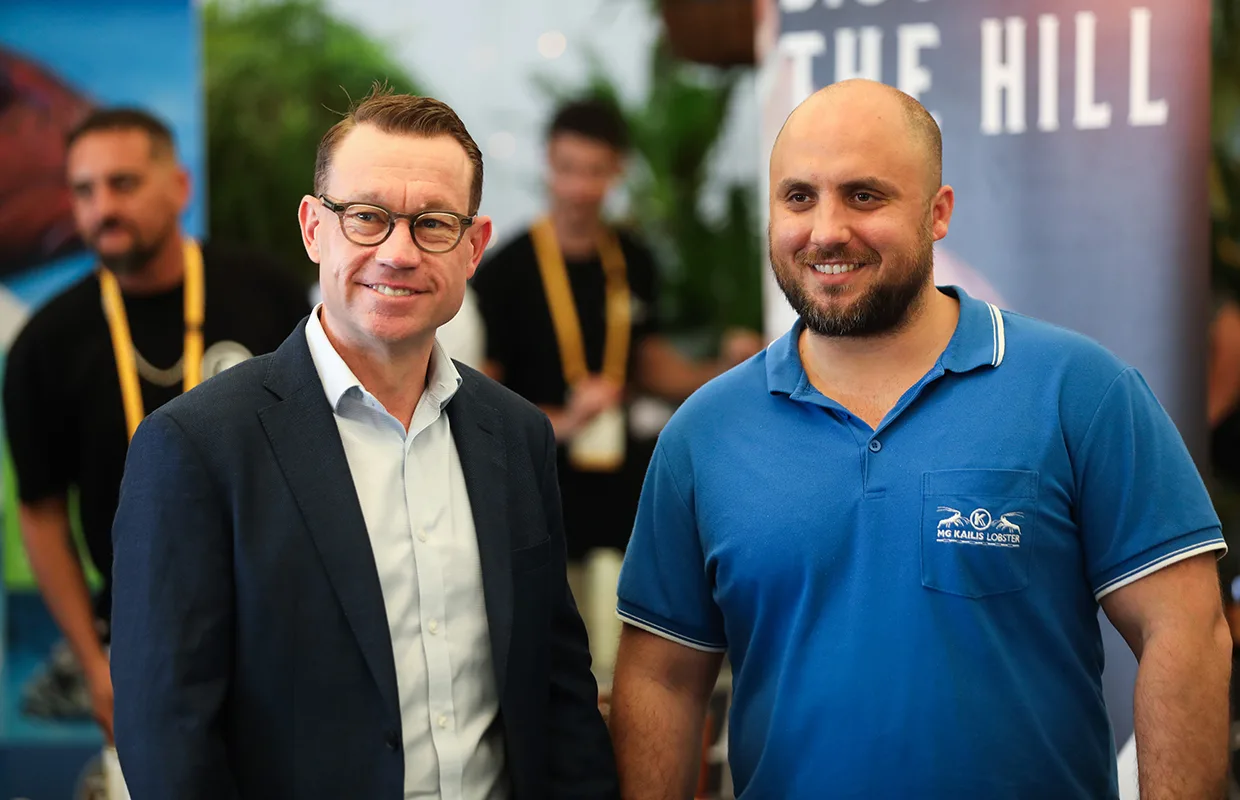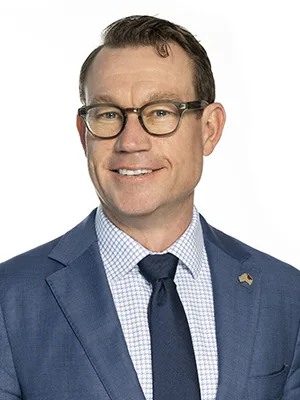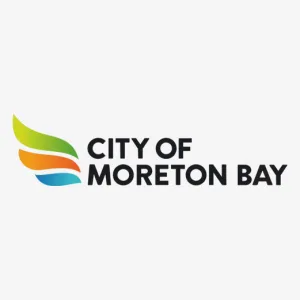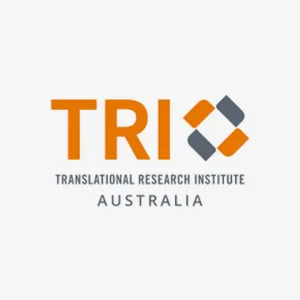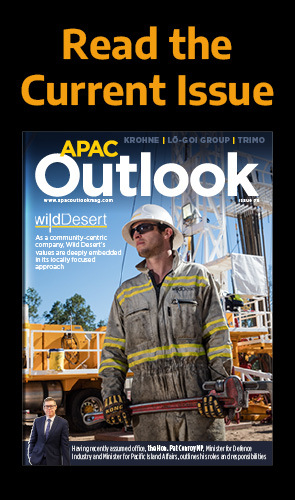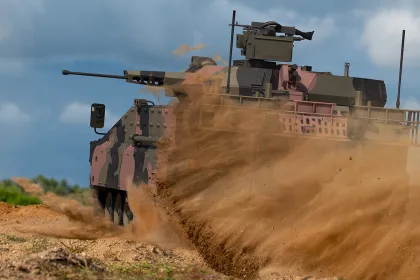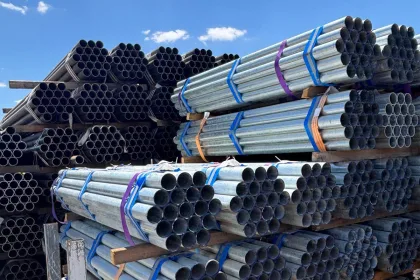As it seeks to sustain an already prosperous economy, Queensland’s trade and investment sector is unlocking fresh export potential, strengthening international partnerships, and positioning itself as a prime destination for investors and innovators.
QUEENSLAND TRADE AND INVESTMENT INDUSTRY SPOTLIGHT
Australia’s economic prosperity has historically relied on its overseas exports as an island nation, having also leveraged foreign direct investment (FDI) to bring in skills and capital.
Despite experiencing a significant pace of change in recent years, particularly in the wake of the COVID-19 pandemic, Australia’s trade and investment landscape remains robust and has cultivated a reputation as a stable and trusted partner.
The state of Queensland in particular remains a stand-out contributor to the nation’s economy due to its fast-growing population, abundant mineral reserves, and sophisticated infrastructure, which combine to present an attractive business environment.
In addition, strategically located at the crossroads of the Asia Pacific region, Queensland has established enviable trade partnerships with many of Southeast Asia’s fastest-growing economies.
Meanwhile, a flourishing academic landscape, renowned for its innovation and ground-breaking R&D, is a key differentiator fuelled by world-class universities, four of which are listed amongst the QS Top 50 Under 50, which ranks the top universities under 50 years old.
Ahead of the 2032 Olympic and Paralympic Games, which will take place in and around Queensland’s capital city, Brisbane, development of infrastructure and facilities is currently underway, anticipated to have a significant statewide impact on trade and investment to the tune of AUD$8.1 billion in economic and social benefits.
As such, the Queensland Government’s global trade and investment agency, Trade and Investment Queensland, is delivering the 2032 Trade and Investment Strategy, which aims to boost prosperity by leveraging existing competitive advantages in an ever-evolving global economy whilst seeking additional trade and investment opportunities.
It also plans to raise Queensland’s profile as an attractive trade and investment partner by participating in major global events and continuing to attract international investment to grow the job market.
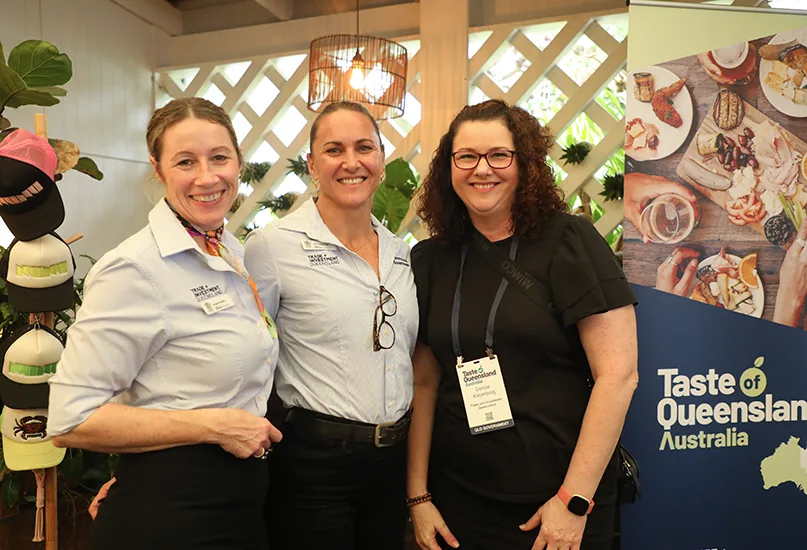
Q&A WITH TRADE AND INVESTMENT QUEENSLAND
We sit down with Justin McGowan, CEO of Trade and Investment Queensland, who discusses the organisation’s role in advocating on behalf of Queensland and supporting the state’s export businesses which are integral to Australia’s national economy.
Firstly, could you talk us through the origins and primary goals of Trade and Investment Queensland?
Justin McGowan, CEO (JM): At Trade and Investment Queensland (TIQ), we’re not just connecting Queensland to the world, we’re reimagining how a state of five million people competes in a global economy of billions.
We’re all about representing the state, which today has a half-a-trillion-dollar economy, and its goods and services.
We have officers in 27 locations across 18 global markets, as well as eight offices across Queensland, and we help businesses of all sizes – from small family firms to very large organisations – to leverage global opportunities.
What is your perspective on Australia’s trade and investment landscape, and how has it evolved over the course of your career?
JM: It’s a mix of both challenging and exciting; I think the entrepreneurial spirit that exists both in Queensland and the rest of Australia is positive.
Out of necessity, we’re required to make friends and partners and connect with the world. There are challenges – particularly in light of the headwinds caused by the COVID-19 pandemic.
However, we’ve got a compelling story to tell. We’re a big mining state; we’ve got lots of critical minerals and some of the best coal in the world, particularly coking coal that is essential for making steel.
On the agriculture front, we export 70 percent of what we produce. For example, we’ve got 13.5 million cattle in the state, and we love exporting our beef, whilst exporting fruits and vegetables is also a significant industry for us.

How do you support the collective interests of your clients whilst assisting them in building export potential and facilitating FDI in the state?
JM: Queensland’s scale demands bold leadership. From remote avocado farms to urban artificial intelligence (AI) labs, we ensure no opportunity is too small to support, and no market is too large to reach.
We have offices in the communities we serve to support micro, small, and medium-sized enterprises. One of our smallest exporters started with a single tray of refrigerated mangoes. With our help, they’re now delivering weekly shipments to South Korea. It’s these examples that demonstrate our true value.
All our services are free, and we help businesses to understand where they’re at in terms of their maturity before identifying potential markets to help them get export-ready.
As such, we have a number of grant programmes where we financially support businesses in increasing their maturity. This includes identifying their barriers to entry by providing assistance with labelling standards, for example, or protecting their intellectual property in particular markets.
Then, we come up with a business plan and remain with them for the first 12 months until they secure an initial deal. We don’t let them go until they get a deal across the line.
How extensively is TIQ involved in contributing to policy and regulatory frameworks that may affect Queensland’s trade and investment landscape?
JM: As the Queensland Government’s dedicated global business agency, we are responsible for trade policy in the state and seek to influence policy where we’re not directly responsible. We may advocate to the Australian Government or other departments of the Queensland Government to make the state as competitive and productive as it can possibly be.
One in four jobs in Queensland are underpinned by trade, and one in eight are underpinned by FDI, which is incredibly important to our economy.
So, yes, we work hard to influence policy settings to ensure everyone in Queensland knows we are a trading state.
The importance of trade and investment is more acute in regional areas – in fact, 42 percent of Queensland exporters are located regionally.
When we’re looking at a small country town with 2,000 people, for example, TIQ can help by introducing a solar farm that creates another 20 jobs to support and maintain the local economy.
This kind of thing makes a huge difference to those small communities.
Therefore, a significant portion of our efforts support regional Queensland as much as the southeast corner, where Brisbane and the Gold Coast are located and a lot of economic activity typically occurs.
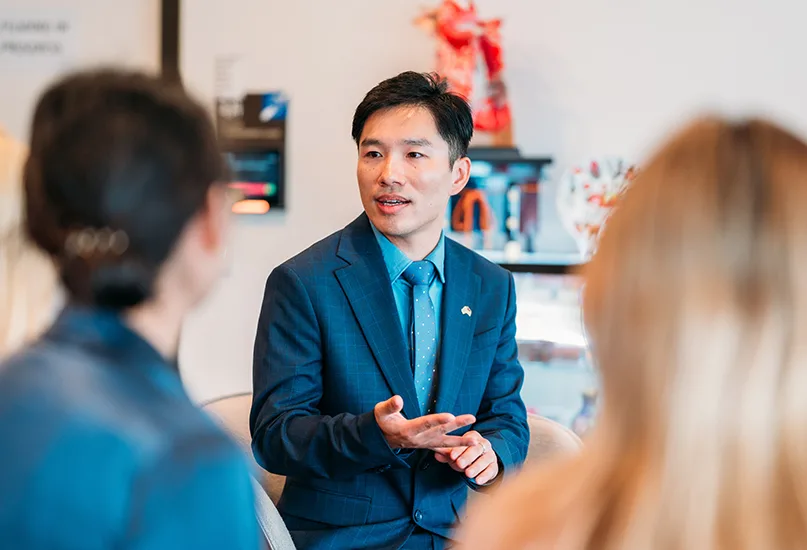
How do you leverage the advantages of Queensland’s strategic geographic position at the crossroads of the Asia Pacific region, and how extensively does Queensland’s export market support the national economy?
JM: We’ve got about 20 percent of the country’s exporters, meaning about 8,000 are here in Queensland, and we have approximately half a million businesses.
Queensland and Western Australia do the majority of the heavy lifting in terms of supporting the Australian economy. We export more than Victoria and New South Wales combined, largely because of the commodities we export such as gas and agriculture.
Our proximity to Asia Pacific is a distinct advantage for Queensland, and we know that Southeast Asia is going to be the fourth-largest economy by 2040, so we are currently focusing our efforts on that.
We have offices in Ho Chi Minh City and Hanoi (Vietnam), Jakarta (Indonesia), and Singapore. We recently relocated our headquarters from Singapore to Vietnam to account for the growing economy there.
Vietnam is the fastest-growing economy in Southeast Asia. Soon, we’ll launch our Southeast Asia-Queensland strategy, reflecting our top priority markets for the state – India and Southeast Asia – accordingly.
We’re currently heavily exposed to China, Japan, South Korea, Taiwan, and India, so we are looking to diversify our economy as much as possible.
Could you talk us through the role TIQ is set to play in the 2032 Olympic and Paralympic Games in Brisbane, the accompanying infrastructure development, and the anticipated trade increase?
JM: When you have the opportunity to host a major global event, you must leverage it.
Currently, when people think of Australia, they might think of Melbourne or Sydney – this is our opportunity to really put Brisbane on the global stage.
We’re looking at a range of activities in the lead up to 2032, and at the moment, Queensland has distinct exposure as a Gold Partner of the Australia Pavilion at Expo 2025 in Osaka, Japan, which is anticipated to welcome more than 28 million people.
Expo 2025 and the 2032 Olympic and Paralympic Games are not just great events – they are global stages. Our job at TIQ is to turn that spotlight into investment pipelines, partnerships, and a lasting international business legacy for Queensland.
Currently, Queensland is known as a great holiday destination and mining state, but not necessarily as a great place to do business.
This year, we will be accentuating and highlighting the business environment and trade investment opportunities available in the state in a more prominent way.
We have universities here that rank amongst the top 50 in the world, great innovation, and we’re one of the fastest-growing states in Australia from a domestic migration point of view – lots of people are moving here.
The next wave of trade isn’t about moving goods, it’s about moving ideas, innovation, and trust.
Looking to the future, what are TIQ’s key priorities, and how do you see the investment landscape evolving?
JM: A key priority for us currently is preserving our existing market share against some significant global headwinds.
We exported approximately AUD$134 billion worth of goods and services last year, so maintaining our market share is important.
There are also particular markets where we’re seeking to grow and diversify – we’re hopeful Australia will enter into a free trade agreement with Europe over the next 12 to 18 months, which we see as a distinct opportunity.
We already have offices in London and Frankfurt, and we’re potentially expanding our footprint in Europe.
For us, it’s all about respecting our existing trading partners, shoring up those relationships, and then creating new opportunities – not just in terms of who we trade with, but what we trade. Ultimately, we’re looking at diversifying our range of offerings as a state.
Over the next five years, we anticipate challenges and a degree of uncertainty and volatility surrounding global economies. In part, this is due to changes in the US Administration, but even more broadly, there were 77 federal elections last year, so there’s a lot of turbulence.
In an unpredictable world, Queensland offers investors something rare – certainty. Here, rules don’t change with the wind. Here, your capital doesn’t just find a home, it finds a future.
“In an unpredictable world, Queensland offers investors something rare – certainty. Here, rules don’t change with the wind”
Justin McGowan, CEO, Trade and Investment Queensland
Finally, are you optimistic about the future of Queensland’s trade and investment sector?
NC: In Queensland, we’re incredibly optimistic, and I think we’ve got good reason to be.
For example, I just attended a BioTech conference with some amazing local companies. People outside of Queensland might not know we have some incredible technology, and we’re due to send over 100 people to the BIO International Convention in Boston, US – the largest BioTech conference in the world.
We’ve got great R&D capability in the state, one example being a company called Vaxxas, which has developed advanced vaccine technology with microneedles.
The technology looks like a Nespresso coffee pod; a spring-loaded mechanism vaccinates you when the technology is activated, and there’s no cold chain storage required. Imagine being able to send this capability anywhere in the world; you can even self-applicate it.
There is an important job to do in highlighting the R&D capability that already comes out of Queensland. It’s worth noting that, as a state, we don’t just send critical minerals and coal around the world.
Having said this, we have recently discovered AUD$500 billion worth of 19 of the world’s 31 critical mineral deposits in the state – and they’re incredibly shallow and easy to mine. So, we’re currently in a kind of gold rush around critical minerals such as vanadium, cobalt, and nickel – many of the critical minerals the world needs.
So, our exports are now pivoting from shipping coal, liquid natural gas (LNG), and fruits and vegetables towards critical minerals.
We’ve got a great offering, and we’re well-balanced in terms of our position in the world.
The reality is, as a state, we’re a half-a-trillion-dollar economy – if we were a country, we’d rank 48th in the world.
I believe Queensland will be one of the world’s most admired subnational economies by 2032 – and I’m here to make sure we get there, not by chance, but by design.



